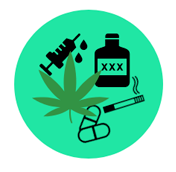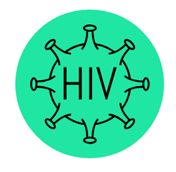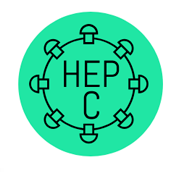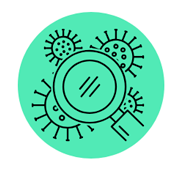HIV
Human Immunodeficiency Virus (HIV) is a virus that breaks down certain cells and damages the immune system. When the immune system is not protected, it’s easier to get sick from infections that the body could normally fight off, or contract infections that can be deadly. Once a person has HIV, the virus stays in the body for life. There’s no cure, but the right medicines can help a person with HIV live a healthy life. Without treatment, HIV can advance into Acquired Immunodeficiency Syndrome (AIDS). According to www.hiv.gov, 1 in 7 people living with HIV do not even know they are infected. Moreover, out of the 254 counties in Texas, El Paso County was 6th in the state with the highest number of HIV diagnoses and people living with HIV in 2017 (2017, Texas HIV Surveillance Report).
HIV can be transmitted through:
-
Unprotected sex (vaginal fluids and semen)
-
Infected needles or syringes
- Breast Milk
- Blood
HIV is NOT transmitted through:
-
Shaking hands
-
Kissing
-
Coughing
-
Sneezing
-
Hugging or holding ands
-
Sharing food/drinks
-
Using the same utensils as someone with HIV
To avoid contracting HIV, get tested and know your partner’s status.
It is recommended to get tested once a year if practicing abstinence, every 6 months if you're in a monogamous relationship, and every 30 days after a new sexual partner.
Other ways to avoid contracting HIV is using condoms correctly with every sexual contact and not sharing any injecting equipment like syringes, with others.
Medicines, such as PrEP and PEP, can help prevent HIV (pre-exposure and post-exposure).





